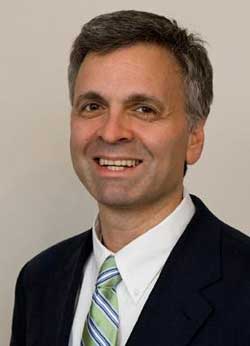Filed Under > International
Half a Million Served: TC Helps Prepare a Generation of Leaders in the Global South
Six years ago, India’s Global Education and Leadership Foundation (tGELF) gave Teachers College $750,000 – hardly small change, but in the world of global initiatives, a relative drop in the bucket – to create a program to identify and develop middle- and high school students with leadership potential. Initially 25 schools in India’s capitol region signed up to use the curriculum.
As of this spring, the initiative, known as the Life Skills and Leadership Program, is serving more than 500,000 young people across southern Asia and North Africa. More than 100 former participants, known as Khemka Scholars (after tGELF’s parent organizations, the Nan and Jeet Khemka Foundation, which is the philanthropic arm of the SUN Group, an energy corporation based in India and Russia) are now attending college at prestigious institutions around the world courtesy of the program. The very first Khemka Scholar, Chandrika Srivastava, graduated from Yale University in 2012 and is currently pursuing an M.S. Civil and Environmental Engineering from Stanford University. An annual Life Conference – a kind of mini-Davos at which students mingle with social entrepreneurs, community development specialists, educators and others – has become a major forum to discuss potential solutions to the world’s most challenging problems.
How did a handful of faculty members and students from West 120th Street help work all this magic?
“This was really an ideal instance of collaboration between TC and a global partner,” says William Gaudelli, Associate Professor of Social Studies and Education, who led the effort and remains an independent consultant to the project. “It was the vision of tGELF and the Khemka family to, in their words, ‘cast a really wide net in search of the next Ghandi’ – leaders to take up the challenges of the near future and address them in ways that are ethical, principled and effective. We were brought on board to help develop curricula and design and support professional development for teachers.”
The effort has succeeded for two key reasons, Gaudelli says.
“First, there was agreement on all sides that if you are going to engage students in learning, you’ve got to start by engaging their teachers in the precisely same sorts of ways. That is, you’ve got to get them to be meta-cognitive, to reflect on their classroom practices.”
And second because while TC played a key role at the outset, tGELF and partnering districts and schools have taken the ball and run with it.
“We created a train-the-trainer model, which was required because of the scale,” Gaudelli says. “For the first three and a half years, we held workshops for master trainers and lead teachers in schools. Now they’re running it themselves, and though they are using much of what we gave them, they’ve really adapted it for use in all kinds of regions and cultures.”
The Life Skills and Leadership Program focuses on identifying young people with leadership potential and developing their attitudes, skills, values, knowledge and leadership styles during the course of secondary school. The program, which consists of 12 sessions over the course of a school year, is mandatory for all eighth and ninth grade children at participating schools. Students work on team skills, thinking skills and writing, speaking and listening skills; engage in role-play and exercises that involve moral decision making; learn to identify their own leadership strengths and weaknesses; and discuss the qualities of national and global leaders. They also participate in conflict management workshops, an adventure camp and organic farming, and spend time with street children.
The program becomes more selective during junior and senior high school, with just one percent of participants ultimately being selected as tGELF Leadership Scholars. The Scholars receive tuition to any college or university in the world, and are free to pursue careers in any field they choose.
“The program has really flourished, and we’re tremendously proud that it has reached so many students,” Gaudelli says. “But it’s humbling to remember the size of the region we’re serving.” He grins. “When we hit the 500,000 mark, the former Prime Minister [Manmohan Singh, who spoke at the project’s launch in 2008) said to us, ‘So when will the pilot phase be over?’”
Published Tuesday, Jul. 1, 2014
